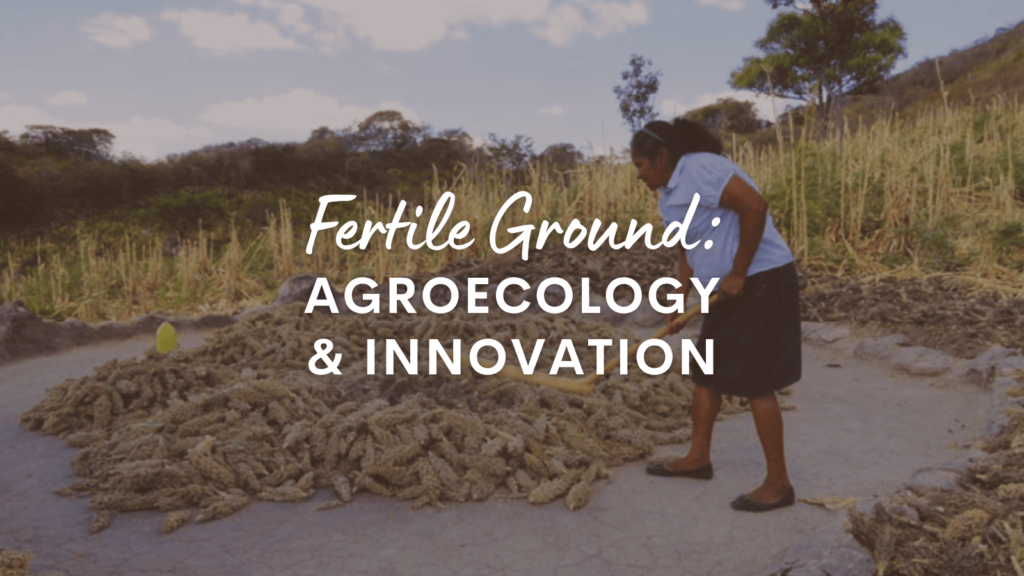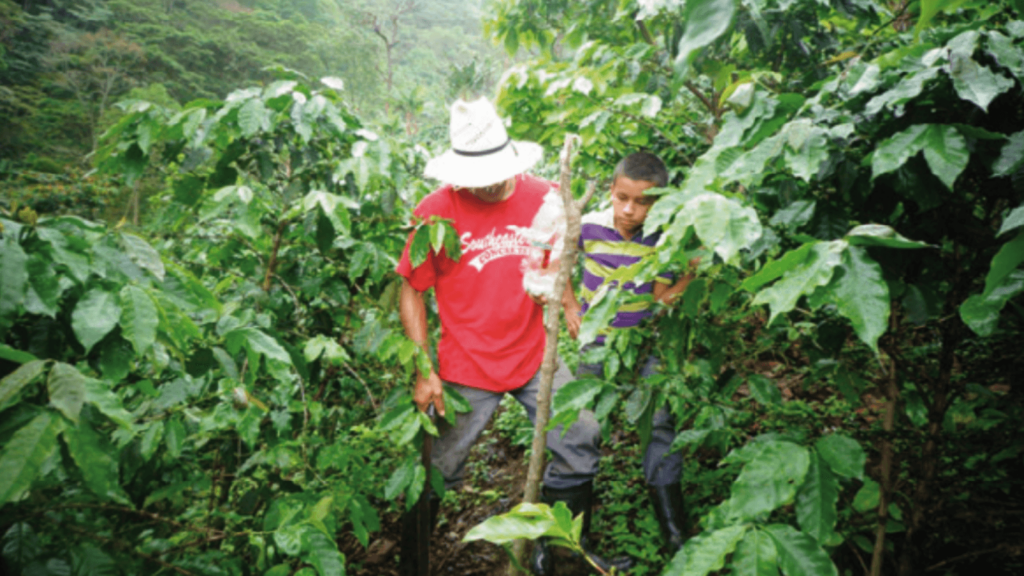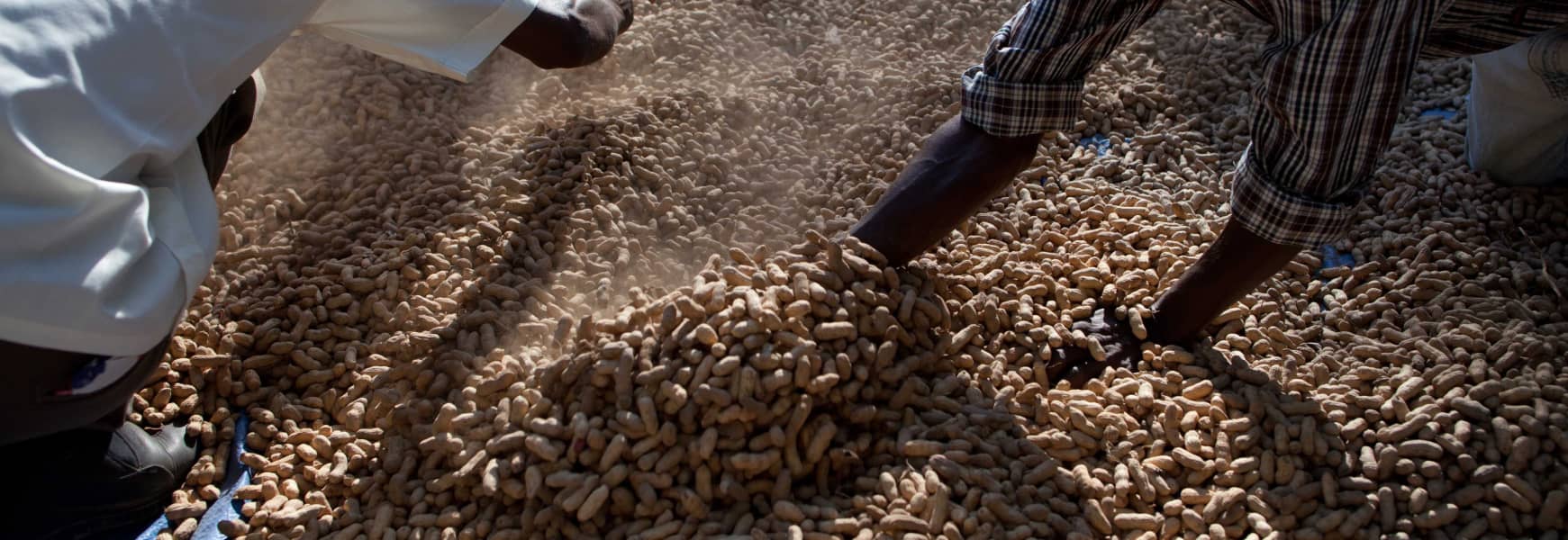Fertile Ground: Agroecology and Innovation
During a systemic “polycrisis” in agriculture and food systems, agroecology emerges as a transformative solution. Agroecology addresses climate change, health crises, and global hunger while catalyzing practical, scalable approaches for sustainable diets, soil regeneration, and climate resilience. Embraced by diverse institutions, it aims for a just transition, nourishing landscapes, and empowering farmers in the face of pressing challenges.

Peasant Innovation and Agroecology in Brazil’s Semi-Arid Region
The core of identifying, mobilizing, and safeguarding common goods is to strengthen social practices that are rooted in reciprocity and trust. This enhances regional economic activities by significantly reducing transaction costs, improving product quality, and expanding scale. A prime example is the construction of slab cisterns, where community associations manage Solidarity Revolving Funds. Families repay loans, benefiting new families, resulting in a 90% increase in families benefiting from the funds. Cooperative efforts cut cistern unit costs by 30%, multiplying initial funds by 172%. This approach, emphasizing shared responsibility and reciprocity, builds infrastructure sustainably and fosters economic growth, reinforcing the importance of community-driven initiatives.
The following are institutional frameworks needed for collective resource management:
- Equipment: Unions and farmer associations organize 15 mobile silage machines, benefiting around 150 families and stimulating fodder planting, with an average annual output of 20 tons per family.
- Biodiversity: A network of 65 community seed banks preserves agrobiodiversity, providing local seeds for planting, enhancing autonomy, and improving crop security. Additionally, a nursery network produces tree seedlings.
- Labor: Mobilizing community labor, observed in cistern construction, improves decentralized water access and agroecosystem management.
- Savings and Loans: Farmers establish 150 Solidarity Revolving Funds for equipment and inputs, intensifying agroecosystem productivity.
- Markets: 13 agroecological fairs and a collective sales network enhance family farmers’ financial returns through diversified produce facilitated by programs like the Food Purchase Program (PAA) and the National School Meals Program (PNAE).
Peasant innovation thrives through networks of farmer experimenters, reshaping work routines, fostering connections, and addressing rural challenges. This creates horizontal links among farmers on various geographic and organizational scales, from the agroecosystem to territorial levels. Paradigm shifts, like moving from government-driven “combating drought” to farmers’ “living with the semi-arid,” demonstrate how local actors, including Brazilian Semi-Arid Alliance (ASA), Polo da Borborema, and Assessoria e Serviços a Projetos em Agricultura Alternativa (AS-PTA), reframe their reality, enhance political capital, and forge a new development path grounded in farmer labor and agroecological principles. This approach promotes innovation, builds resilient community resources, and challenges conventional perspectives on sustainable development.

Building a National Agroecology Movement in Honduras
The history of hillside farming in Central America reveals a cycle of exploitation and political oppression since Spanish colonization. The Green Revolution in the 1960s brought modernization but led to soil degradation and dependence on chemicals. In the 1970s, peasant organizations advocated for land reform and embraced agroecological alternatives—neoliberal policies in the 1980s prioritized export crops, neglecting family farmers. In 1998, Hurricane Mitch’s aftermath didn’t shift priorities; neoliberal policies persisted. A 2009 coup intensified political violence, favoring elite interests, dispossessing rural communities, privatizing seeds, and promoting free trade enclaves. The plight of family farmers worsened, marked by poverty, inequality, and violence, pushing many to seek survival through US immigration.
Despite formidable challenges, the agroecology movement persists, offering hope for Honduras’ future. Farmers and civil society leaders, recognizing agroecology’s diverse contributions, strive to amplify its potential for a more optimistic outlook. Since the late 1970s, farmers’ organizations and NGOs have championed farmer-to-farmer approaches, prioritizing farmer participation and leadership in research and extension activities. Sustainable agricultural techniques, such as soil conservation, in-row tillage, crop residue management, cover crops, agroforestry, companion planting, and organic fertilizers, have been critical components of this effort. The commitment to agroecology reflects a collective pursuit of a more sustainable and resilient agricultural future in the face of ongoing challenges.
Neoliberal policies favoring extractive projects threaten the land rights of family farmers in Honduras. Alliances among community organizations, NGOs, and farmers are forming to resist these policies. Raising awareness about family farming and agroecology is crucial, as many are unaware that 76% of Honduras’ food comes from peasant agriculture. Despite the proven effectiveness of agroecology after Hurricane Mitch, influencing policies remains a challenge for farmers’ organizations and NGOs. This hinders the spread of agroecology, perpetuating poverty and vulnerability. In order to create a more favorable future for Honduras, there’s a pressing need for supportive policies, strengthened rule of law, and democratic processes to enable the full potential of agroecological strategies and movements.
Agroecology is a farmer-centered approach to agricultural innovation and rural development
Agriculture stands as the most influential force on our planet since the conclusion of the ice age. Urgent action is imperative to address the current detrimental impact of agriculture on our planet, or we face significant challenges ahead.
Get your copy of Fertile Ground: Scaling Agroecology from the Ground Up via free download or show your support for Groundswell and receive a printed copy delivered straight to your door.


